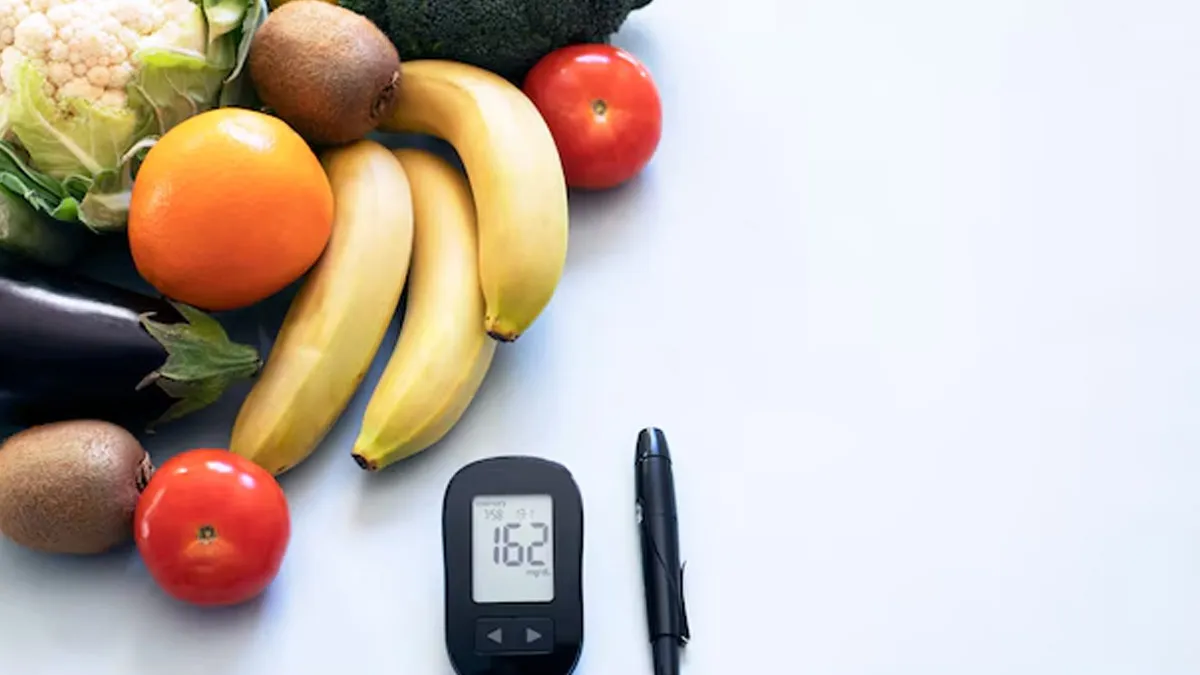
Nutrition is so important for our overall wellbeing, more so for people with pre-existing health conditions like diabetes. Diabetes is a chronic disease that affects the body's ability to regulate blood sugar levels. To manage the same, people really need to pay attention to their food choices and eating habits. But in doing so, they must ensure that all their nutritional needs are being met. This is also because some experts believe that diabetes patients are more at risk of vitamin deficiencies, which can in turn influence blood sugar levels in the body. To understand the same in detail, the OnlyMyHealth team interacted with Dr Swati Tayal Goray, Consultant – Endocrinology, Jupiter Hospital, Baner, Pune.
Table of Content:-
Also Read: Diabetes Management: A Balanced Approach through Diet and Exercise
Are Diabetes Patients More Prone To Vitamin Deficiencies?

“Studies have shown that people with diabetes often exhibit lower levels of specific antioxidant vitamins, particularly A, C, and E,” said Dr Goray, adding that this reduction in vitamin levels is said to result from the necessity of managing oxidative stress linked to glucose metabolism problems.
According to a recent review published in the journal BMJ Nutrition, Prevention & Health, nearly half (45.3%) of type 2 diabetes patients have micronutrient deficiencies, with women more affected than men. Researchers noted that vitamin D deficiency is the most common, with a prevalence of 60.45%, followed by magnesium (41.95%) and vitamin B12 (23.78%), which is higher (28.72%) in metformin users.
Furthermore, retinol-binding protein is involved in the regulation and functioning of adipocytokines, Dr Goray added.
People with diabetes also show diminished levels of thiamine, pyridoxine, and biotin. Studies have shown that diabetes can impede the absorption of several nutrients, such as vitamins B9 and B12, making it necessary to replenish these vitamins frequently.
Can Vitamin Deficiency Worsen Diabetes Symptoms?

According to Dr Goray, vitamin deficiency can, in fact, worsen diabetes symptoms. “This may be linked to the need to address oxidative stress resulting from abnormalities in glucose metabolism,” he reiterated.
He added, “Retinol-binding protein, known for its adipocytokine activities, exerts a modulatory effect. People with diabetes also have reduced levels of thiamine, pyridoxine, and biotin.”
Additionally, metformin, the preferred treatment for type 2 diabetes, has been found to limit the absorption of certain nutrients, such as vitamin B9 and vitamin B12, making regular supplementation of these nutrients necessary for individuals with diabetes. Individuals with low levels of vitamin D are at a higher risk for diabetes and its complications, such as cardiovascular disease.
Also Read: From Neurological Problems To Vitamin Deficiencies, What Could Your Leg Pain Or Discomfort Mean?
Tips For Diabetes Patients To Maintain Optimum Nutrient Levels?

The key is to eat healthy, choosing healthier nutritious foods and beverages that could assist in diabetes management, said Dr Goray.
Some of the foods to eat include:
- Dairy or plant-based dairy items
- Fruits and non-starchy vegetables
- Protein-rich foods
- Whole grains
- Foods that provide nutrients like vitamins, calcium, fibre, and healthy fats
- Beverages with minimal or no added sugar, such as tap or bottled water, low-fat or non-fat milk, and unsweetened varieties of tea, coffee, or sparkling water
Moreover, select meals and snacks that contain less of foods rich in saturated fat. Avoid foods abundant in sodium (which is a component of salt), foods with high sugar content, like cakes and cookies, as well as sweetened beverages such as soda, flavoured coffee, and juice.
Conclusion
Dr Goray suggested that in some diabetes cases, supplements can help combat nutrient deficiencies. However, it's crucial to consult a healthcare provider. While supplements can restore nutrient balance, they also pose risks, especially for those managing diabetes. Excessive intake may affect blood sugar levels and interact with diabetes medications, making proper guidance essential, the doctor concluded.
Also watch this video
How we keep this article up to date:
We work with experts and keep a close eye on the latest in health and wellness. Whenever there is a new research or helpful information, we update our articles with accurate and useful advice.
Current Version